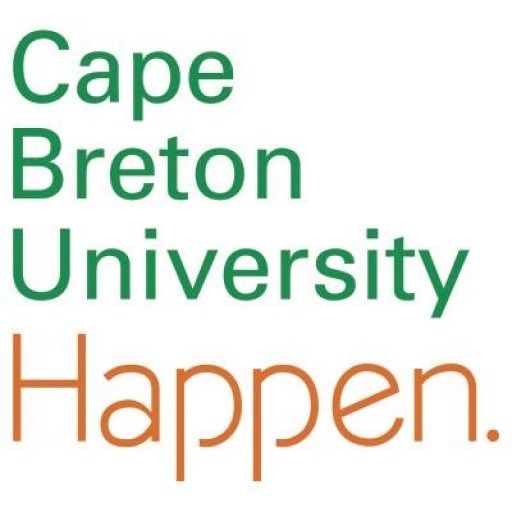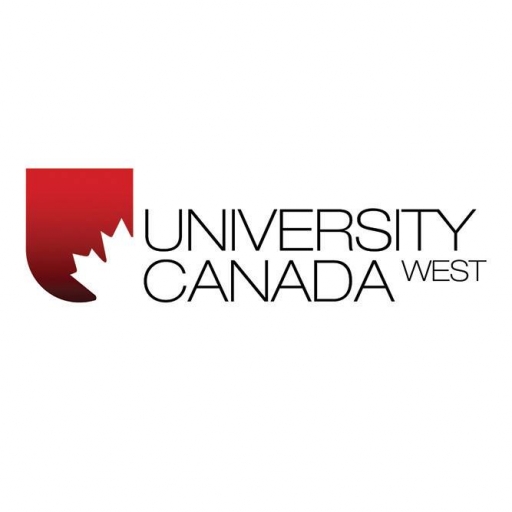Photos of university / #cbuniversity
The Bachelor of Arts in Religious Studies at Cape Breton University offers students a comprehensive exploration of diverse religious traditions, beliefs, practices, and the role that religion plays in shaping societies and cultures around the world. This interdisciplinary program is designed to develop critical thinking, analytical skills, and cultural awareness through the study of a wide range of religious phenomena, including ancient and modern religions, philosophical foundations, sacred texts, rituals, and ethical issues. Students will examine topics such as Christianity, Islam, Judaism, Hinduism, Buddhism, Indigenous spiritualities, and new religious movements, among others. The curriculum emphasizes understanding religious diversity, fostering intercultural dialogue, and analyzing the impact of religion in contemporary global contexts. Throughout the program, students engage in rigorous academic coursework, research projects, and discussions that encourage intellectual curiosity and a nuanced appreciation of religious complexities. The program prepares graduates for various careers in education, community work, counseling, ministry, journalism, public policy, and international development, among other fields. Additionally, students have opportunities to participate in community engagement initiatives, study abroad programs, and internships that enrich their learning experience and connect academic concepts with real-world applications. The Faculty of Arts and social sciences at Cape Breton University provides excellent academic support, ensuring that students are well-equipped with the knowledge and skills necessary to critically analyze and interpret religious phenomena. Graduates of this program will emerge with a deep understanding of religious traditions and their significance, ethical reasoning skills, and the ability to engage thoughtfully with diverse communities. Whether students are interested in pursuing further studies or entering the workforce directly, the Bachelor of Arts in Religious Studies offers a solid foundation for understanding the role of religion in both historical and contemporary contexts.
Program Overview: Religious Studies at Cape Breton University
The Bachelor of Arts in Religious Studies at Cape Breton University offers students a comprehensive exploration of religious beliefs, practices, texts, and historical developments from a global perspective. This program is designed to provide a deep understanding of the role religion has played and continues to play in shaping cultures, societies, and individual identities across the world. Through a multidisciplinary approach, students examine various religious traditions, including Christianity, Islam, Judaism, Buddhism, Hinduism, Indigenous spiritualities, and other faith systems, understanding their origins, doctrines, rituals, and cultural impacts.
The curriculum emphasizes critical thinking, analytical skills, and intercultural understanding. Students engage with sacred texts, philosophical debates, theological discourses, and contemporary issues related to religion’s influence on social justice, ethics, politics, and environmental concerns. Courses are structured to promote active discussion, research, and reflection, encouraging students to develop their own informed perspectives on complex religious phenomena.
In addition to core courses covering the history, beliefs, and practices of major religions, students have opportunities to specialize through electives that explore topics such as religious ethics, theology, sacred languages, religious art and symbolism, and the role of religion in modern society. The program also offers practical components, including fieldwork, internships, and community engagement, aiming to connect academic study with real-world experiences.
Our faculty members are experts in their fields, bringing diverse backgrounds in theology, anthropology, sociology, history, and philosophy. They are committed to fostering an inclusive learning environment that respects diverse viewpoints and promotes open dialogue.
Graduates of the Religious Studies program are well-equipped for careers in education, community service, journalism, public policy, religious organizations, and other fields where an understanding of religious diversity and intercultural competence is vital. The program also provides a strong foundation for students who wish to pursue graduate studies or theological education.
Overall, the Religious Studies program at Cape Breton University offers a rich educational experience that nurtures curiosity about human spirituality, enhances intercultural awareness, and prepares students to engage thoughtfully and ethically with the religious dimensions of contemporary life.
program requirements include the successful completion of 40 course credits, which typically involve a combination of core courses, electives, and capstone or research projects. students are expected to complete foundational courses in religious studies, philosophy, history, and cultural studies to build a solid interdisciplinary base. advanced courses focus on specific religious traditions, contemporary religious issues, and critical methods used in religious analysis. students must complete a minimum of 6 credits in research methodology or related disciplines to develop their analytical skills. participation in seminars, workshops, and discussions is strongly encouraged to foster critical thinking and active engagement. some programs may require a comprehensive exam or thesis project as a culminating experience to demonstrate mastery of the subject matter and research capabilities. internships or practical experience in religious organizations or community projects can sometimes be part of the curriculum to provide practical exposure. students are also expected to adhere to academic integrity policies and demonstrate proficiency in relevant research tools and resources. language proficiency in English is mandatory for participating in coursework and assessments. a minimum GPA of 2.0 may be required for program completion, with higher standards possibly applicable for honours tracks or research-intensive streams. students are advised to consult with academic advisors regularly to ensure they meet all program and graduation requirements. overall, the program aims to develop critical, analytical, and intercultural understanding of religious phenomena, preparing graduates for careers in education, community work, research, or further academic study.
Financial support for the Religious Studies program at Cape Breton University is available through a variety of funding options designed to assist students in managing their educational expenses. Prospective and current students are encouraged to explore multiple sources of financial aid, including provincial and federal governments, university-specific scholarships, bursaries, and external funding opportunities. The Nova Scotia Student Assistance Program offers loans and grants aimed at residents of Nova Scotia, which can significantly offset tuition costs and living expenses. Cape Breton University awards numerous scholarships based on academic achievement, socio-economic need, community involvement, and specific criteria related to the field of study. These include entrance scholarships, renewable awards, and specialized bursaries for Indigenous students, mature students, and those pursuing studies in the liberal arts and social sciences.
In addition, students enrolled in the Religious Studies program are encouraged to apply for extracurricular funding and leadership awards provided by the university. The university's financial aid office provides comprehensive guidance on the application processes, eligibility requirements, and deadlines relevant to these opportunities. Students can also explore external scholarships offered by religious organizations, cultural associations, and national foundations supportive of studies in religion, philosophy, and related disciplines. Furthermore, the university participates in work-study programs, cooperative education, and part-time employment opportunities which enable students to earn income during their studies, gaining practical experience while supporting their educational goals.
Cape Breton University emphasizes inclusive support for its diverse student body, and outreach services are available to assist students from underrepresented backgrounds in accessing financial aid. International students may have access to limited government support but are encouraged to seek institutional scholarships and external funding sources tailored for international scholars. Overall, the financing options for the Religious Studies program aim to reduce financial barriers, promote academic success, and foster a vibrant learning community rooted in diverse cultural and religious perspectives. Students are advised to consult the university's financial aid office early in their academic planning to ensure they take full advantage of available funding opportunities and to receive personalized assistance tailored to their individual circumstances.
Religious Studies at Cape Breton University offers an interdisciplinary approach to understanding the diverse religious traditions, beliefs, practices, and their roles in societies across the world. The program is designed to provide students with a comprehensive knowledge of major world religions such as Christianity, Islam, Judaism, Buddhism, Hinduism, and indigenous spiritualities. Students explore the historical development, theological ideas, rituals, and ethical teachings of these faiths, alongside contemporary issues related to religion, secularism, and interfaith dialogue. The curriculum emphasizes critical thinking, cultural awareness, and academic research skills, preparing graduates for careers in education, community services, interfaith work, government, and non-profit organizations. The program encourages active engagement with local and global religious communities through community service projects, seminars, guest lectures, and study trips. Students also examine topics such as religious conflicts, human rights, gender issues, and the role of religion in shaping identity and cultural heritage. An emphasis on research methodology, writing, and oral presentations helps students develop essential skills for academic and professional success. The program often includes opportunities for internships and collaborative research, fostering practical experience in religious organizations and related fields. Graduates of the Religious Studies program at Cape Breton University become well-rounded individuals with a nuanced understanding of religious diversity and a capacity for empathetic dialogue and social engagement. The program aims to promote religious literacy, respect for pluralism, and a deeper appreciation of the spiritual dimensions of human life, enabling students to contribute meaningfully to multicultural and increasingly interconnected societies.



